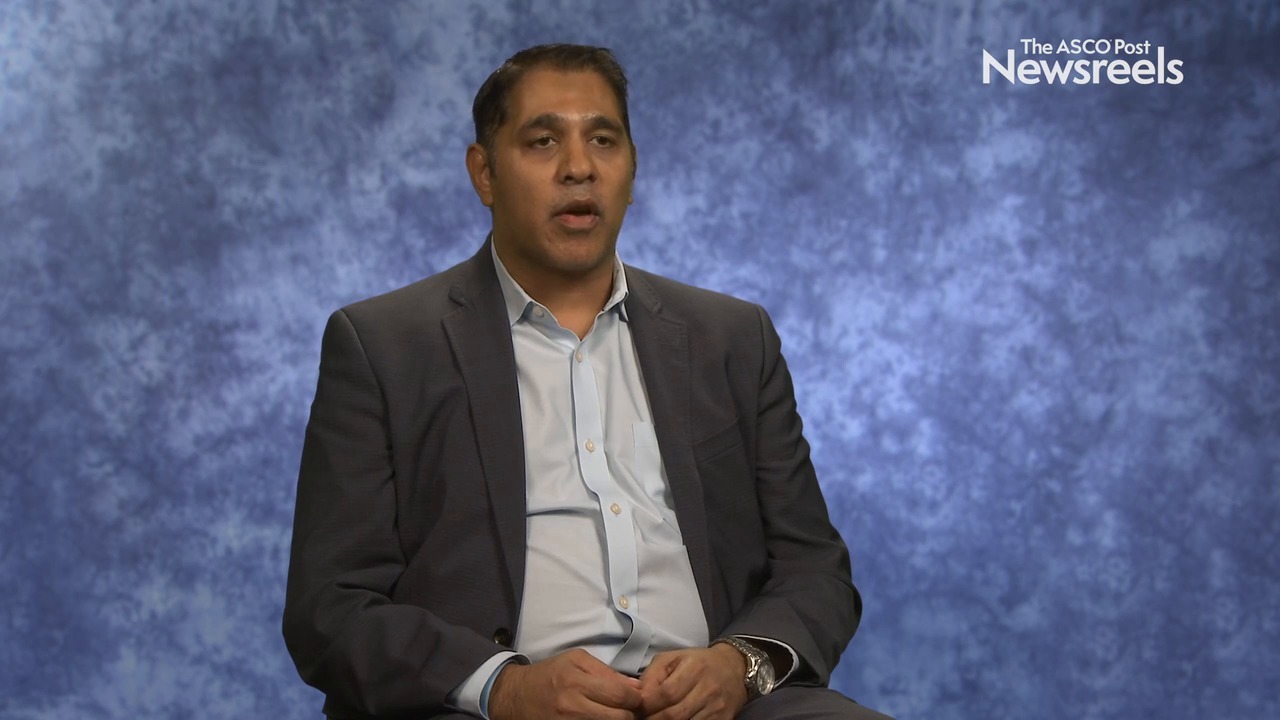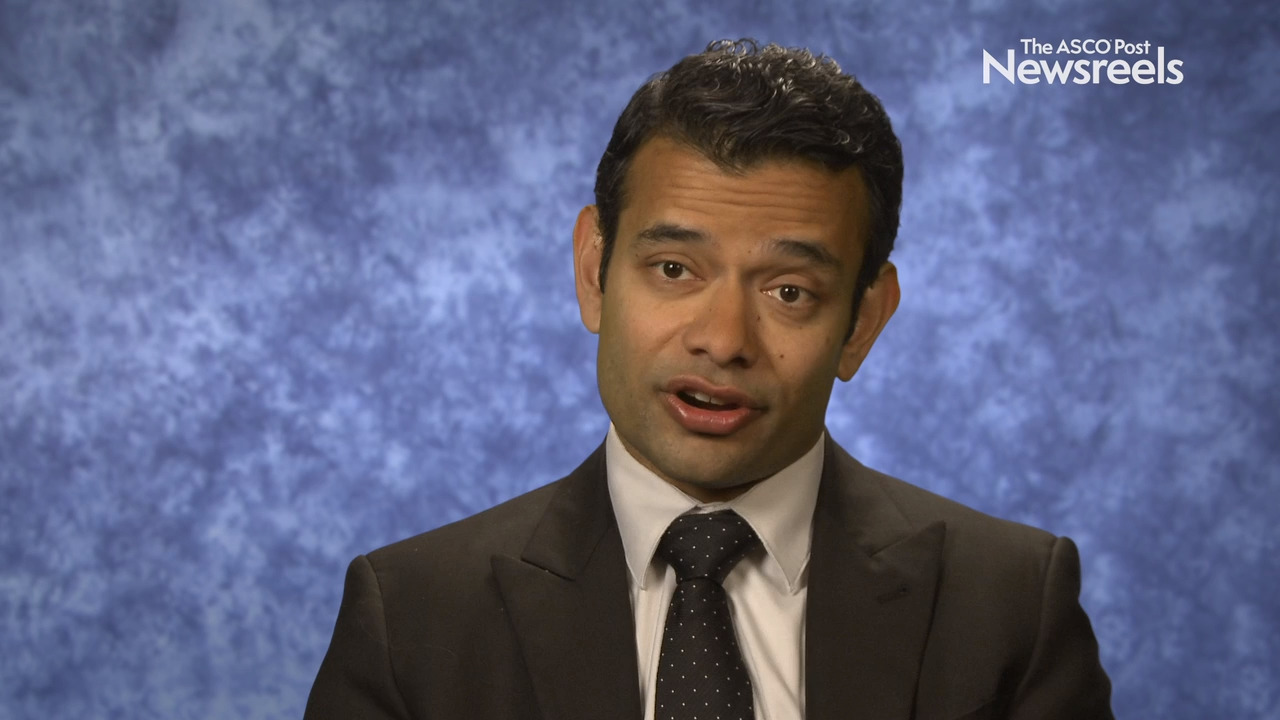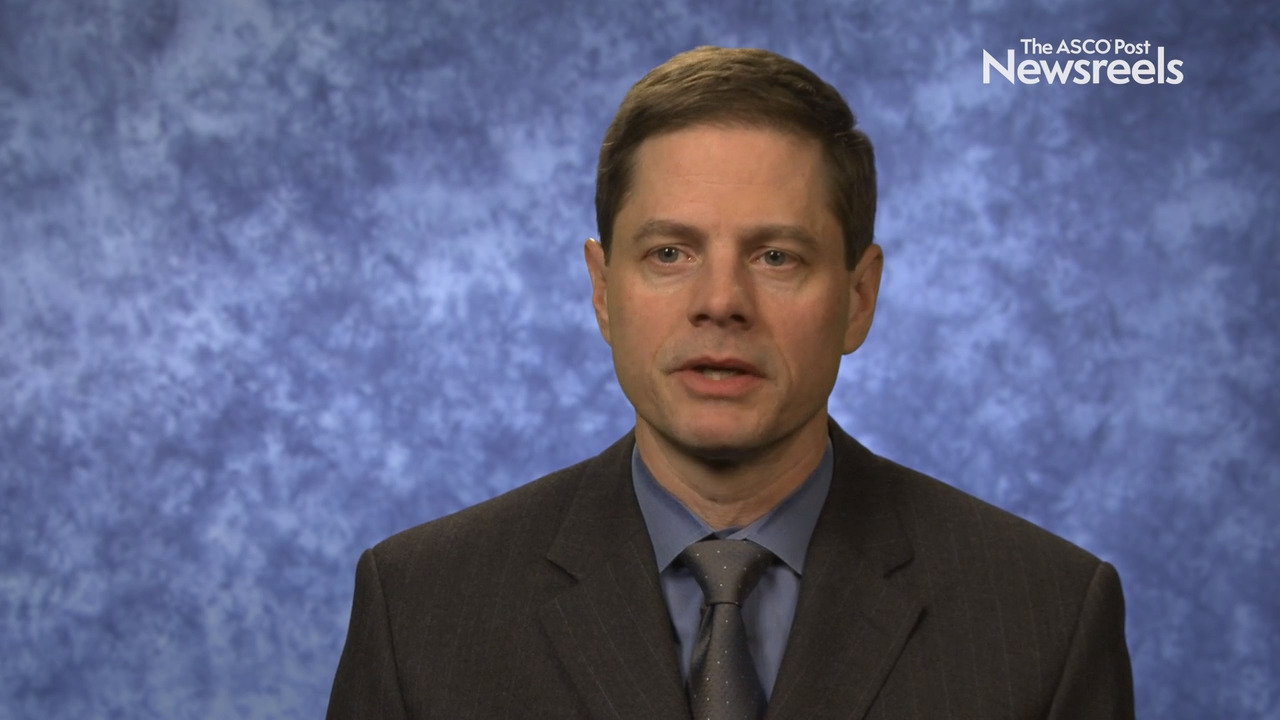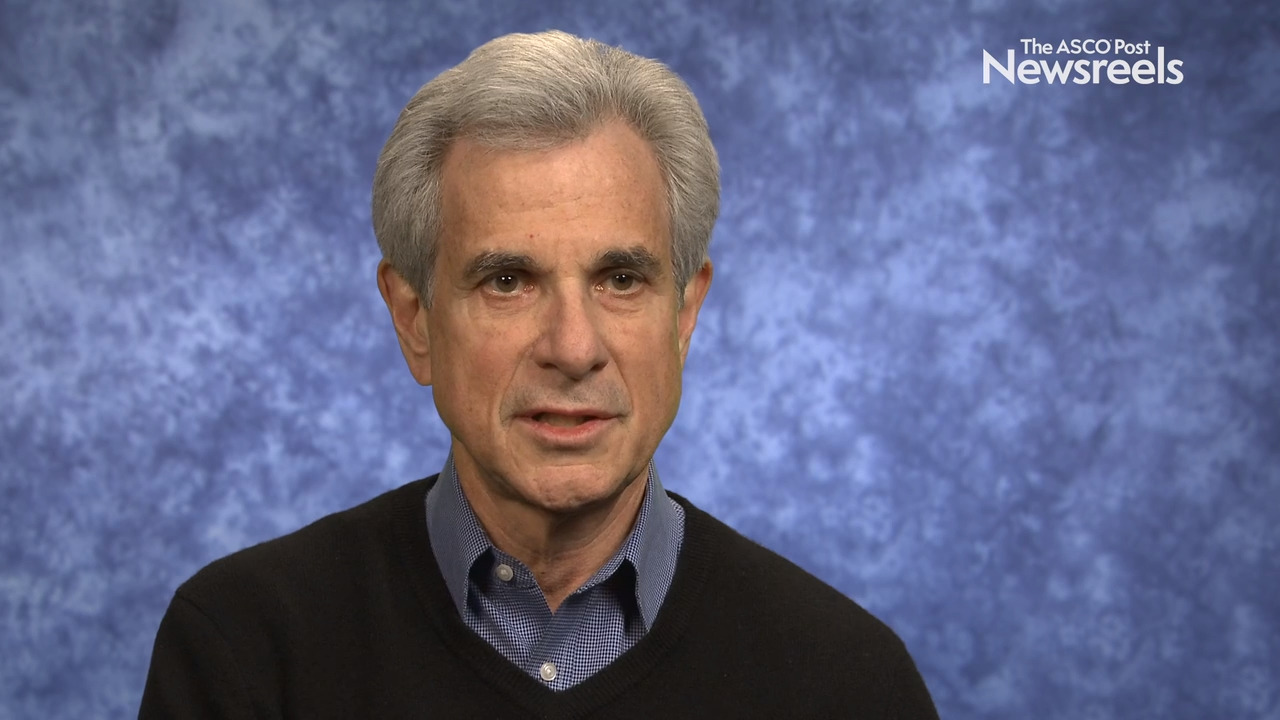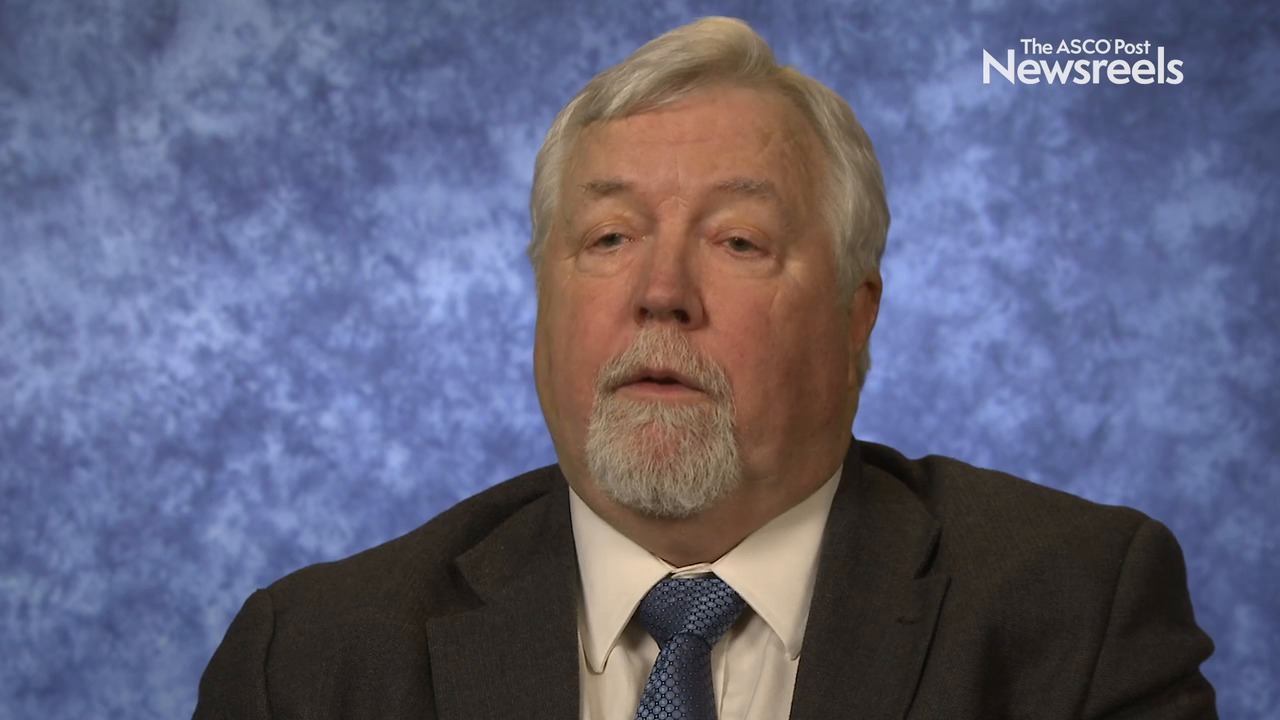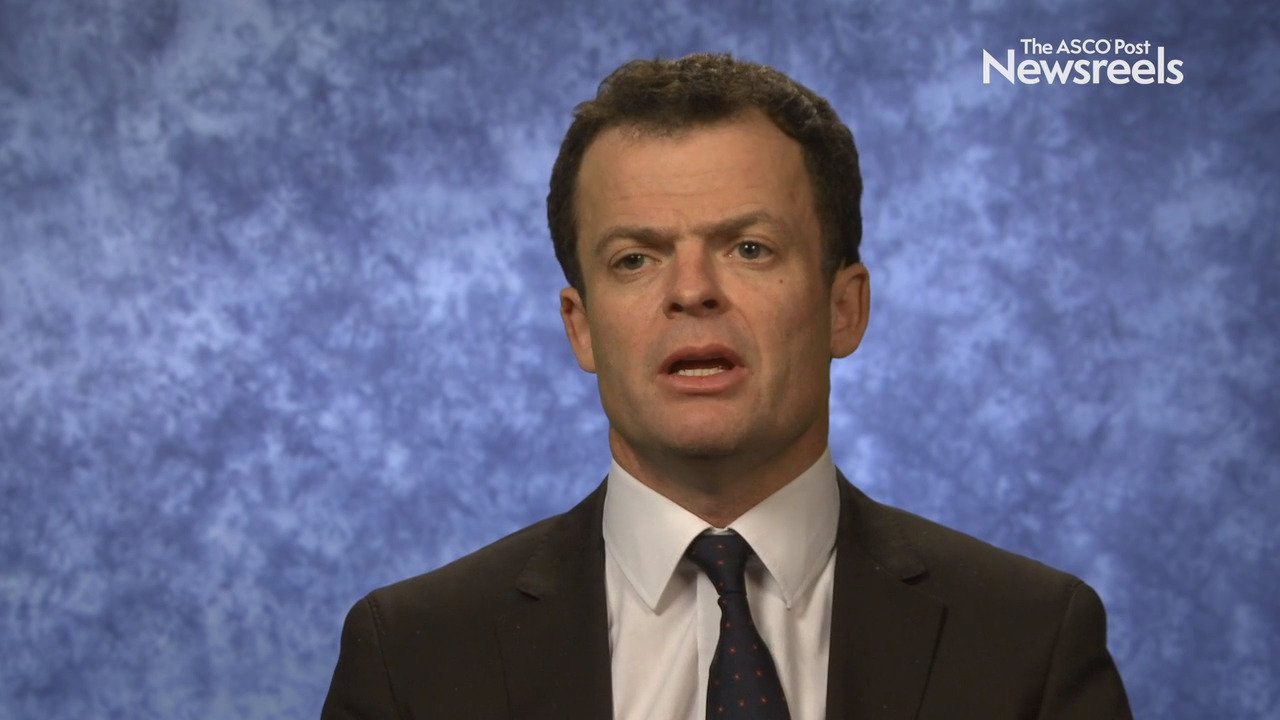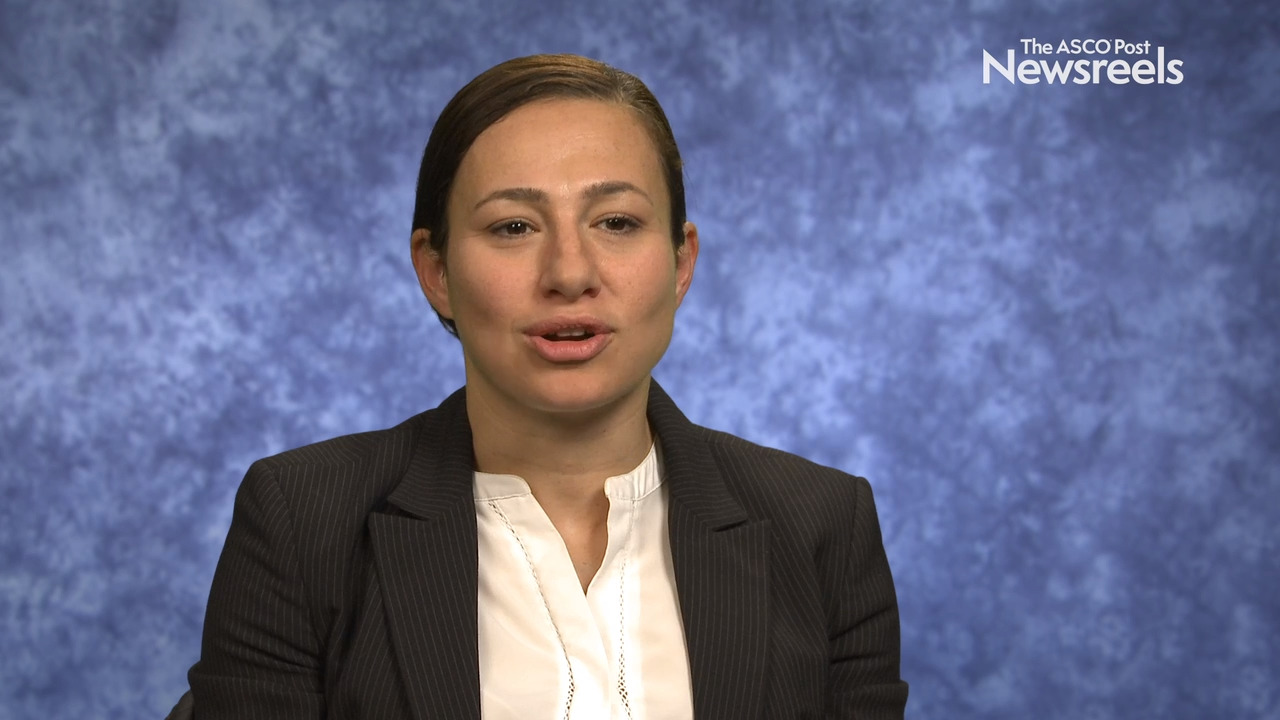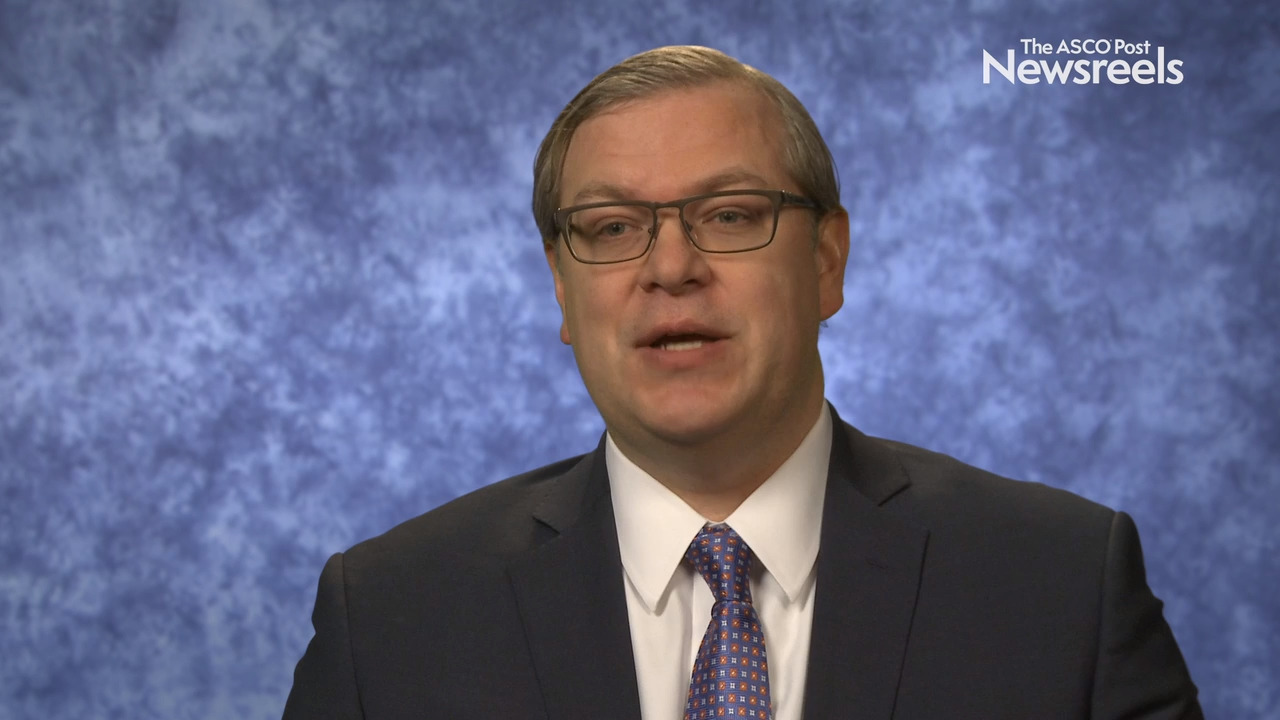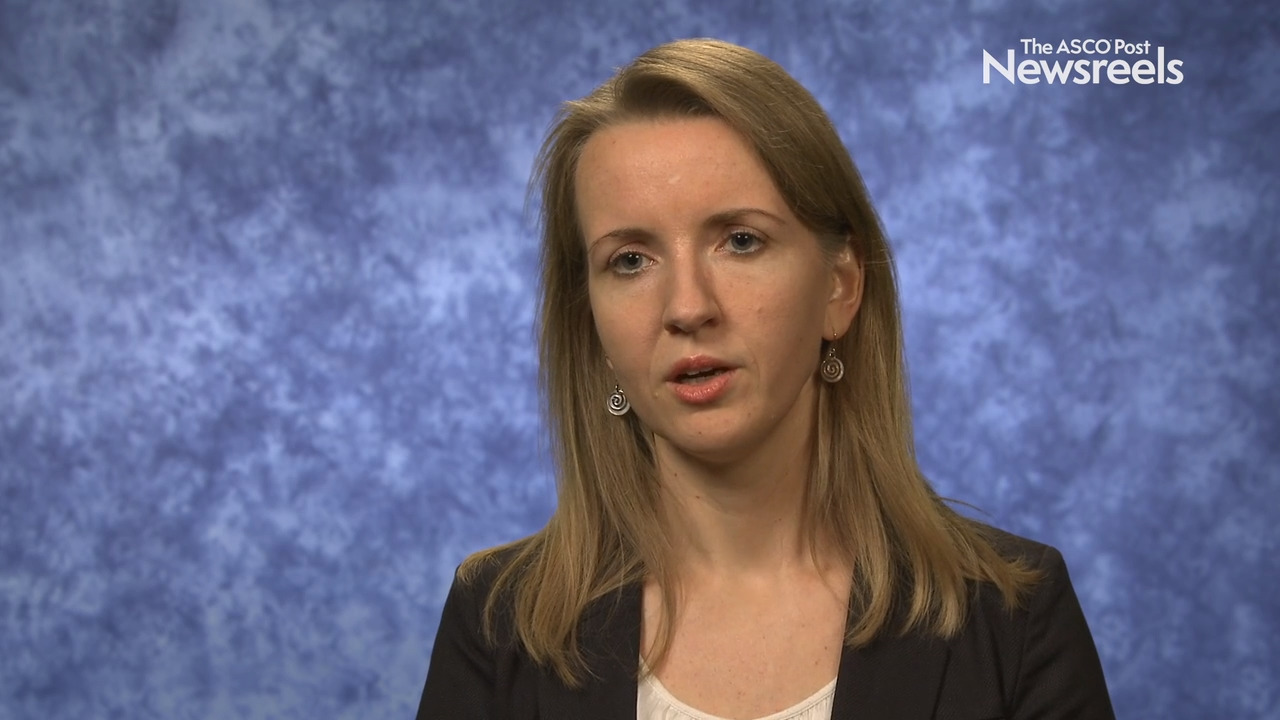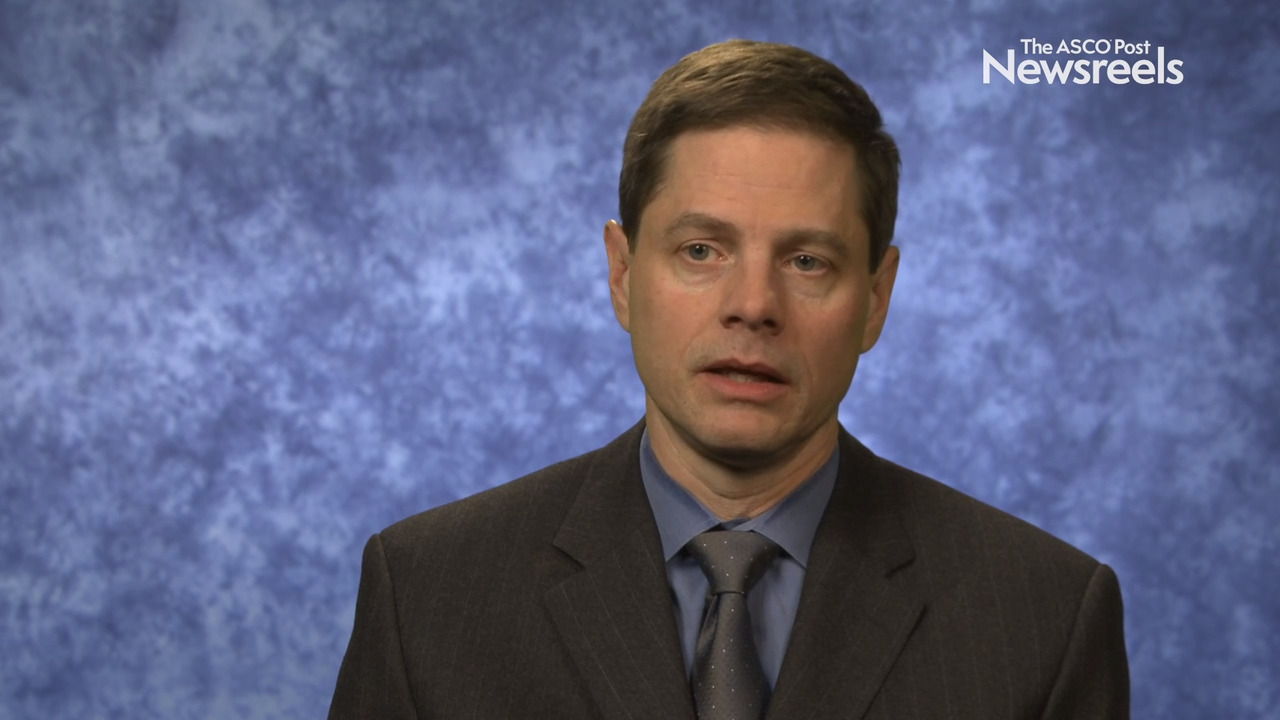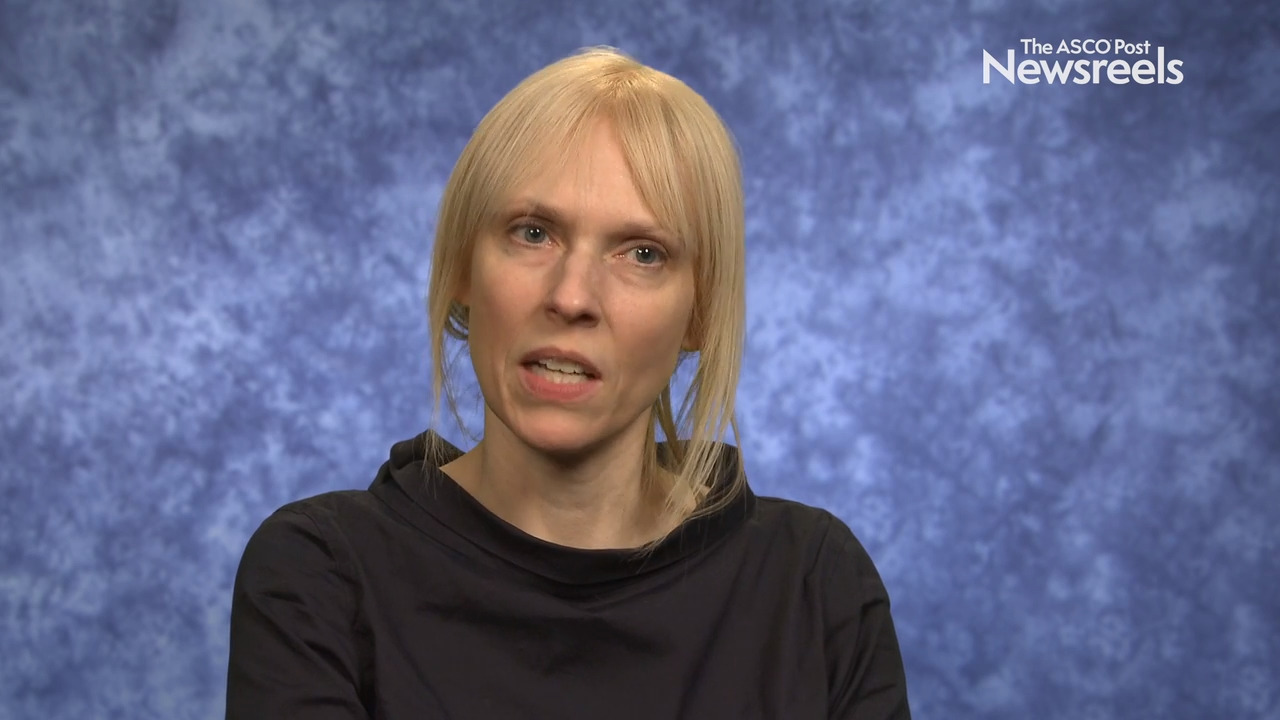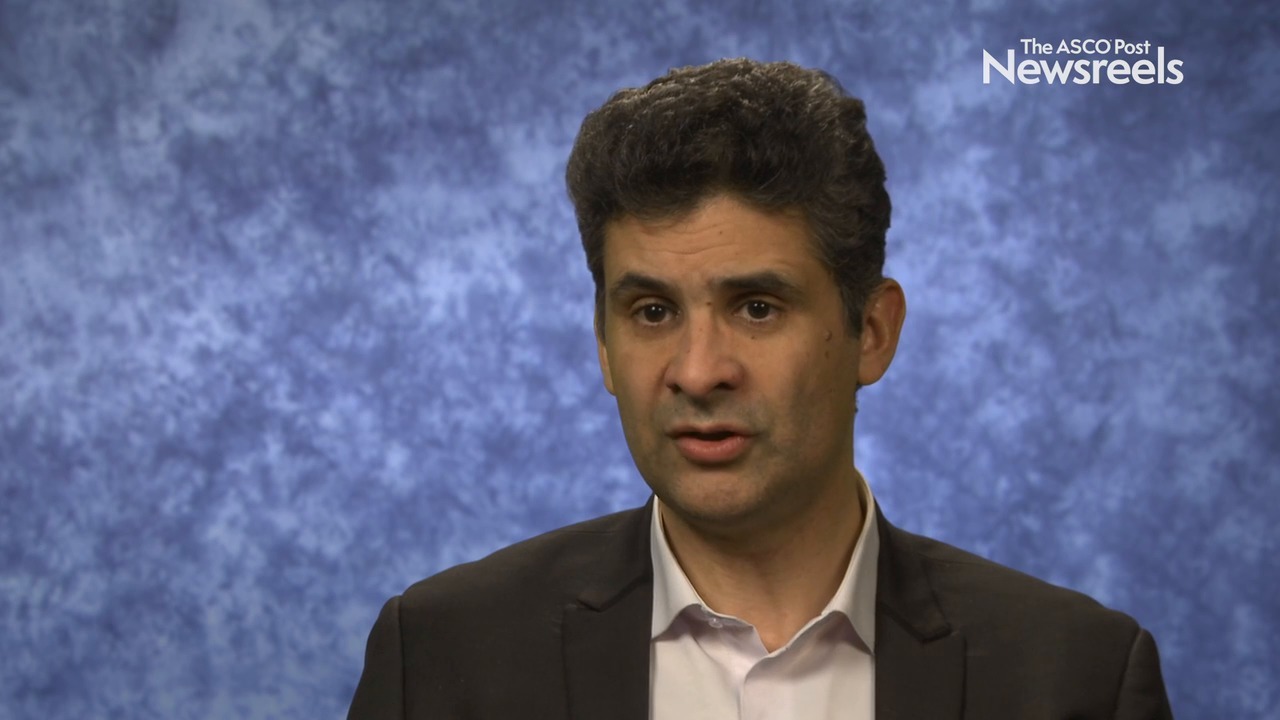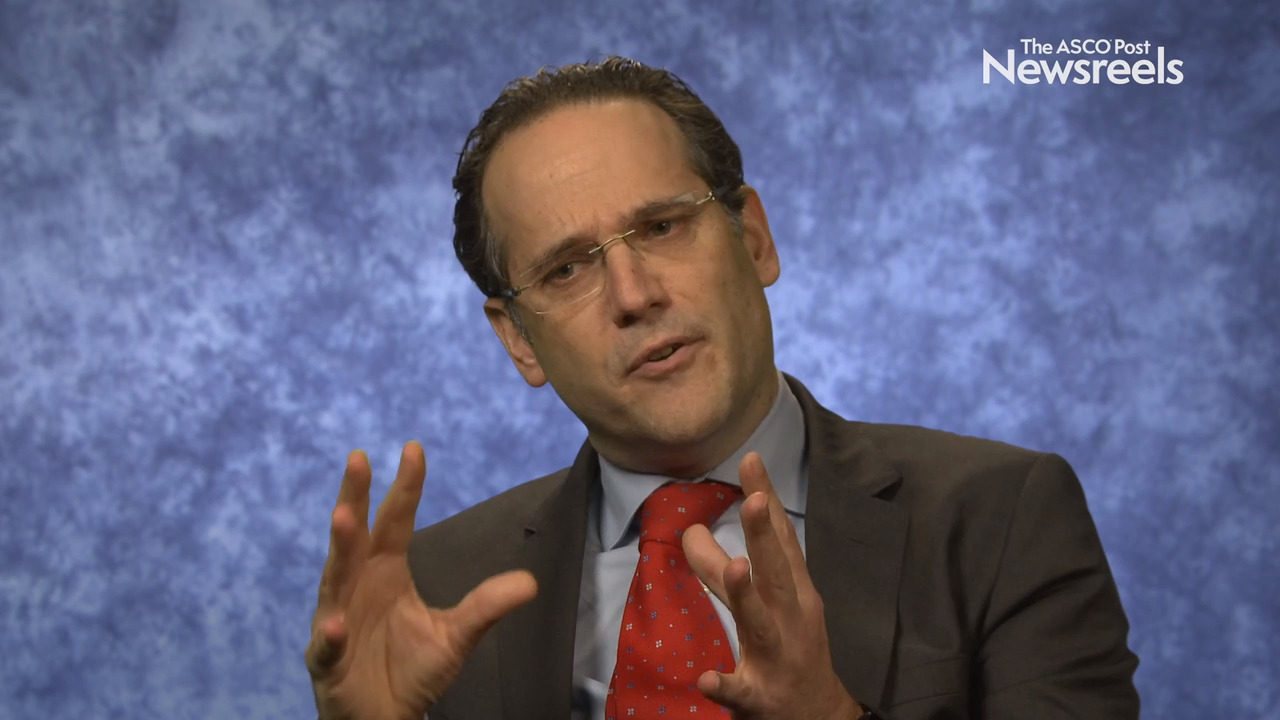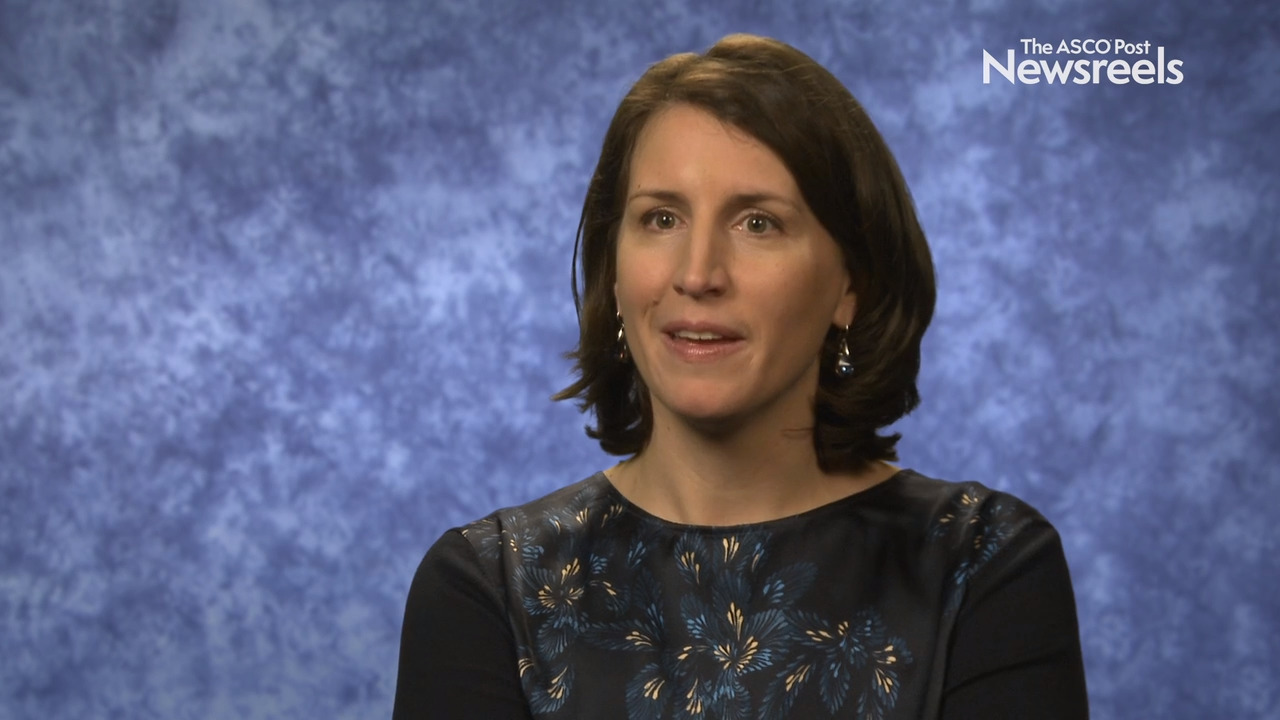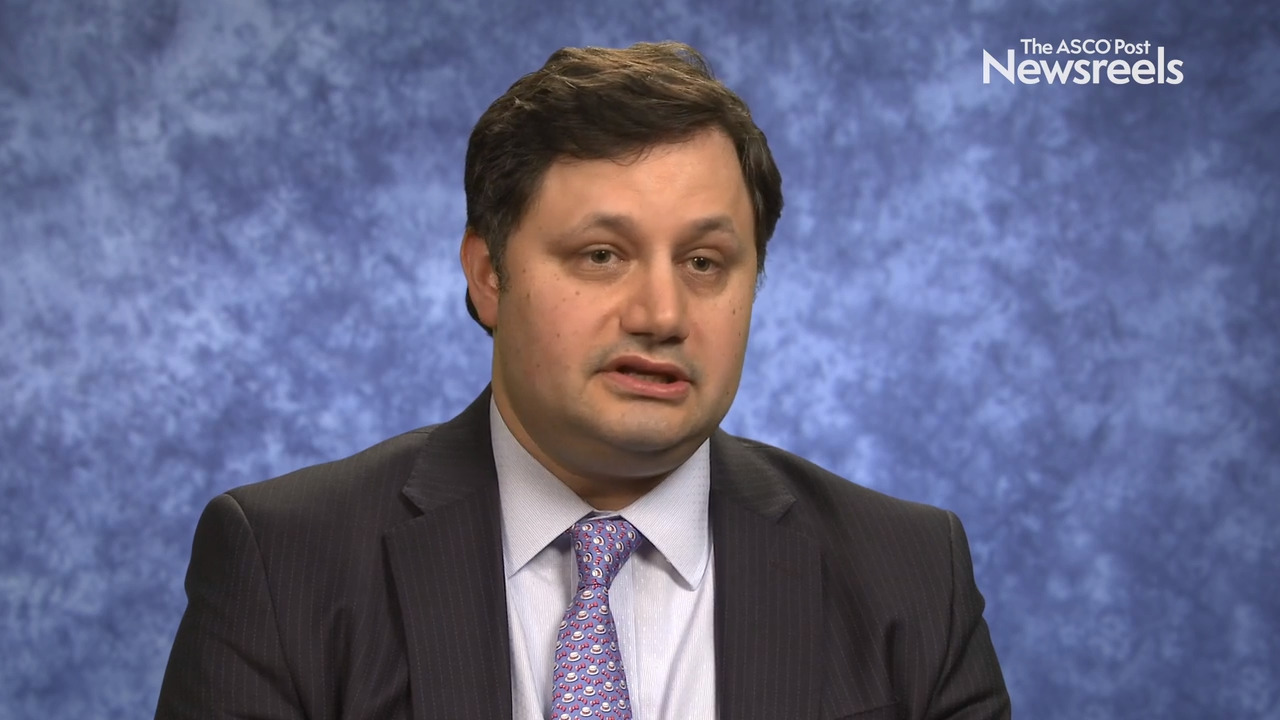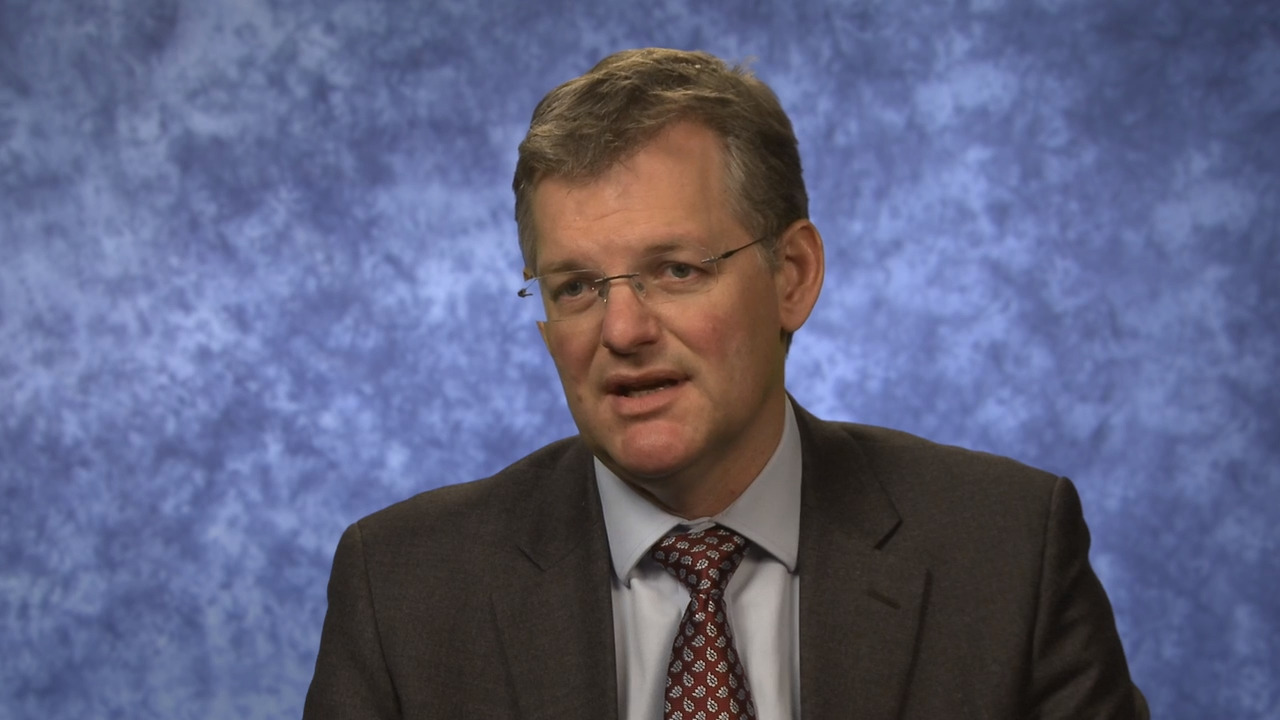2019 Genitourinary Cancers Symposium
Novel Treatments Under Study in Renal Cell Carcinoma and Prostate Cancer
There were numerous notable presentations at the 2019 Genitourinary Cancers Symposium, many of which were covered in The ASCO Post over the past few months. To add to our continued coverage of this me...
Novel Treatments Under Study in Renal Cell Carcinoma and Prostate Cancer
There were numerous notable presentations at the 2019 Genitourinary Cancers Symposium, many of which were covered in The ASCO Post over the past few months. To add to our continued coverage of this me...
Sacituzumab Govitecan Shows Activity in Heavily Pretreated Bladder Cancer
PRELIMINARY EVIDENCE suggests that the antibody-drug conjugate sacituzumab govitecan is active in patients previously treated with chemotherapy or checkpoint inhibitor therapy for metastatic urothelia...
Adjuvant Sequential Chemotherapy Plus Radiotherapy vs Radiotherapy Alone for Locally Advanced Bladder Cancer
A phase III Egyptian trial presented by Mohamad S. Zaghloul, MD, et al at the 2019 Genitourinary Cancers Symposium focused on the benefit of adjuvant chemotherapy in patients with locally advanced bla...
Enzalutamide Plus Androgen Deprivation Therapy in Metastatic Hormone-Sensitive Prostate Cancer
Adding enzalutamide to androgen-deprivation therapy (ADT) significantly prolonged radiographic progression-free survival in men with metastatic hormone-sensitive prostate cancer, reducing the risk of ...
TIVO-3: Tivozanib vs Sorafenib in Refractory Advanced Renal Cell Carcinoma
The TIVO-3 trial was conducted to confirm progression-free survival results from the TIVO-1 trial, which found an improvement in median progression-free survival in patients with metastatic renal cell...
Early Tumor Shrinkage and Outcomes Following Cabozantinib or Everolimus
IN A RETROSPECTIVE analysis of median overall survival from the phase III METEOR trial,1 Ignacio Duran, MD, PhD, and colleagues sought to determine whether early tumor shrinkage following therapy ...
First-Line Therapy for Advanced Kidney Cancer: Combination Treatment vs Sunitinib
TWO RECENTLY reported phase III trials have shown the benefits of combination therapy vs sunitinib in the first-line treatment of advanced renal cell carcinoma. As reported in The New England Journ...
Expert Point of View: Tracy Rose, MD, MPH
THE FORMAL DISCUSSANT of the KEYNOTE-427 trial, Tracy Rose, MD, MPH, of the University of North Carolina, Chapel Hill, told listeners: “I think pembrolizumab should now be considered an option for no...
KEYNOTE-427: Pembrolizumab Shows Activity in Advanced Non–Clear Cell Kidney Cancer
IMMUNOTHERAPY WITH the checkpoint inhibitor pembrolizumab may prove to be an effective option for patients with advanced non–clear cell renal cell carcinoma, according to results in cohort B of the KE...
Expert Point of View: Tracy Rose, MD, MPH
THE FORMAL DISCUSSANT of the KEYNOTE-427 trial, Tracy Rose, MD, MPH, of the University of North Carolina, Chapel Hill, told listeners: “I think pembrolizumab should now be considered an option for no...
Study Finds Pembrolizumab Active in Advanced Non–Clear Cell Kidney Cancer
IMMUNOTHERAPY WITH the checkpoint inhibitor pembrolizumab may prove to be an effective option for patients with advanced non–clear cell renal cell carcinoma, according to results in cohort B of the KE...
Nivolumab Combined With Ipilimumab Shows Activity in Prostate Cancer Subsets
In contrast with melanoma, lung cancer, and kidney cancer, immune checkpoint inhibitor therapy has been disappointing in prostate cancer thus far. Because of success in treating other tumor types, int...
Enzalutamide Plus ADT Extends Progression-Free Survival in Metastatic Hormone-Sensitive Prostate Cancer
Adding enzalutamide to androgen-deprivation therapy (ADT) significantly prolonged radiographic progression-free survival in men with metastatic hormone-sensitive prostate cancer, reducing the risk of ...
Expert Point of View: Matthew J. Milosky, MD
FORMAL STUDY discussant Matthew J. Milosky, MD, of the University of North Carolina, Lineberger Comprehensive Cancer Center, Chapel Hill, said there had been few drug approvals in advanced bladder can...
Antibody-Drug Conjugate Shows Activity in Heavily Pretreated Bladder Cancer
PRELIMINARY EVIDENCE suggests that the antibody-drug conjugate sacituzumab govitecan is active in patients previously treated with chemotherapy or checkpoint inhibitor therapy for metastatic urothelia...
Expert Point of View: Ian Davis, MBBS (Hons), PhD, FRACP, FAChPM
ALTHOUGH ARCHES was a positive trial, results may not signal a practice change at this time, according to formal discussant Ian Davis, MBBS (Hons), PhD, FRACP, FAChPM, Monash University Eastern Health...
Interim Analysis of the ARCHES Trial: Enzalutamide Plus Androgen-Deprivation Therapy for Metastatic Hormone-Sensitive Prostate Cancer
ADDING ENZALUTAMIDE to androgen-deprivation therapy (ADT) significantly prolonged radiographic progression-free survival in men with metastatic hormone-sensitive prostate cancer, reducing the risk of ...
Expert Point of View: Ian Davis, MBBS (Hons), PhD, FRACP, FAChPM
THE FORMAL discussant of the ARAMIS trial, Ian Davis, MBBS (Hons), PhD, FRACP, FAChPM, of Monash University and Eastern Health, Melbourne, commented: “ARAMIS is a positive trial with encouraging earl...
ARAMIS Trial: Darolutamide in High-Risk Nonmetastatic Prostate Cancer
THE INVESTIGATIONAL androgen receptor inhibitor darolutamide significantly improved metastasis-free survival in men with high-risk nonmetastatic castration-resistant prostate cancer vs placebo in the ...
Pembrolizumab/Cabozantinib Shows Activity in Previously Treated Renal Cell Carcinoma
THE COMBINATION of pembrolizumab and cabozantinib demonstrated antitumor activity in patients with previously treated metastatic renal cell carcinoma and both drugs were tolerable at their approved do...
Nivolumab/Ipilimumab in Intermediate- and Poor-Risk Advanced Renal Cell Carcinoma
NIVOLUMAB PLUS low-dose ipilimumab continued to demonstrate strong responses as well as a survival benefit with a median of 32.4 months of follow-up as front-line treatment for patients with intermedi...
Evaluating Outcomes of Cabozantinib vs Everolimus in Advanced Renal Cell Carcinoma
IN A RETROSPECTIVE analysis of median overall survival from the phase III METEOR trial,1 Ignacio Duran, MD, PhD, and colleagues sought to determine whether early tumor shrinkage following therapy wit...
JAVELIN Renal 101: Avelumab Plus Axitinib vs Sunitinib in the First-Line Treatment of Advanced Kidney Cancer
THE PROGRAMMED cell death-ligand 1 (PD-L1) inhibitor, avelumab, was combined with the multitargeted vascular growth endothelial factor (VEGF) agent, axitinib, and compared to monotherapy with sunitini...
Expert Point of View: Lori Wood, MD
LORI WOOD, MD, of Dalhousie University in Halifax, Nova Scotia, Canada was the formal discussant for the KEYNOTE 426 study presented at the 2019 Genitourinary Cancers Symposium.1,2 Dr. Wood called th...
KEYNOTE 426: Pembrolizumab Plus Axitinib vs Sunitinib in First-Line Therapy for Advanced Renal Cell Carcinoma
AS REPORTED at the 2019 Genitourinary Cancers Symposium by Thomas Powles, MD, and as published in The New England Journal of Medicine by Brian Rini, MD, and colleagues, significant benefits in overa...
Expert Point of View: Emmanuel S. Antonarakis, MD
EMMANUEL S. ANTONARAKIS, MD, Associate Professor of Oncology, Johns Hopkins University, Baltimore, commented on the state of current knowledge about poly (ADP-ribose) polymerase (PARP) inhibitors in ...
PARP Inhibitors Moving Ahead in Prostate Cancer
MULTIPLE POLY (ADP-ribose) polymerase (PARP) inhibitors are under study in metastatic prostate cancer and no clear winner has emerged yet. Some studies suggest that the best use of PARP inhibitors may...
Expert Point of View: Matthew I. Milowsky, MD
FORMAL STUDY discussant Matthew I. Milowsky, MD, of the University of North Carolina, Lineberger Comprehensive Cancer Center, Chapel Hill, said there had been few drug approvals in advanced bladder ca...
Antibody-Drug Conjugate Shows Activity in Heavily Pretreated Bladder Cancer
PRELIMINARY EVIDENCE suggests that the antibody-drug conjugate sacituzumab govitecan is active in patients previously treated with chemotherapy or checkpoint inhibitor therapy for metastatic urothelia...
ARAMIS Trial Reports Darolutamide Improves Outcomes in High-Risk Nonmetastatic Prostate Cancer
Darolutamide—an investigational androgen receptor inhibitor—significantly improved metastasis-free survival in men with high-risk nonmetastatic castration-resistant prostate cancer vs placebo in the l...
Radioligand Therapy Achieves Responses in Metastatic Prostate Cancer
In a prospective, single-center, single-arm phase II trial reported at the 2019 Genitourinary Cancers Symposium, a novel approach using a tumor-specific radioligand therapy that binds to prostate-spec...
Pembrolizumab/Axitinib Combination Improves Outcomes vs Sunitinib in Kidney Cancer
The checkpoint inhibitor pembrolizumab plus the vascular endothelial growth factor (VEGF) tyrosine kinase inhibitor axitinib significantly improved overall survival, progression-free survival, and obj...
2019 GU Cancers Symposium: First-Line Pembrolizumab Plus Axitinib vs Sunitinib in Advanced Renal Cell Carcinoma
As reported at the 2019 Genitourinary Cancers Symposium (Abstract 543) and in The New England Journal of Medicine, Rini et al found significant benefits in overall and progression-free survival with t...
Sumit K. Subudhi, MD, PhD, on Prostate Cancer: Results From the CheckMate 650 Trial on Nivolumab and Ipilimumab
Sumit K. Subudhi, MD, PhD, of The University of Texas MD Anderson Cancer Center, discusses the initial results from a phase II study of nivolumab plus ipilimumab in the treatment of metastatic castrat...
Sumanta K. Pal, MD, on Clinical Cancer Advances: The 14th Annual Report
Sumanta K. Pal, MD, of City of Hope, who served as a Co-Executive Editor of the 2019 publication Clinical Cancer Advances, discusses progress made during the past year in research and policy. The repo...
Brian I. Rini, MD, on Renal Cell Cancer: Risk Stratification After Resection of Localized Disease
Brian I. Rini, MD, of the Cleveland Clinic Taussig Cancer Institute, discusses current models used to estimate the risk of recurrence as well as genomic data that could help pinpoint individual tumor ...
Howard I. Scher, MD, on Prostate Cancer: Circulating Tumor Cells as a Surrogate Endpoint for Survival
Howard I. Scher, MD, of Memorial Sloan Kettering Cancer Center, discusses circulating tumor cell number as a transitional surrogate endpoint for survival in phase II trials on metastatic castration-re...
Craig R. Nichols, MD, on Testicular Cancer Cases: Should They Be Discussed With High-Volume Centers?
Craig R. Nichols, MD, of the Testicular Cancer Commons and the SWOG Group Chair's Office, discusses the superior outcomes obtained at high-volume centers, the impracticality of referring all patients ...
Thomas Powles, MD, PhD, on Urothelial Carcinoma: Results From the RANGE Trial on Ramucirumab and Docetaxel
Thomas Powles, MD, PhD, of Queen Mary University of London, discusses phase III study findings on ramucirumab plus docetaxel vs placebo plus docetaxel in patients with advanced platinum-refractory uro...
Rana R. McKay, MD, on Renal Cell Carcinoma: Results From a Trial on Atezolizumab and Bevacizumab
Rana R. McKay, MD, of the University of California, San Diego, discusses phase II study findings on atezolizumab and bevacizumab in non–clear cell renal cell carcinoma and clear cell renal cell carcin...
Jason A. Efstathiou, MD, DPhil, on Bladder Cancer: What Is the Best Treatment Option?
Jason A. Efstathiou, MD, DPhil, of Massachusetts General Hospital, discusses the debate over treating muscle-invasive bladder cancer with radical cystectomy vs trimodality therapy.
Stefanie C. Fischer, MD, on Nonseminoma: Outcomes After Adjuvant Bleomycin/Etoposide/Cisplatin
Stefanie C. Fischer, MD, of Manchester Cancer Research Centre and The Christie NHS Foundation Trust, discusses an international retrospective analysis of the rare clinical scenario of men relapsing af...
Brian I. Rini, MD, on Renal Cell Carcinoma: Results From the TIVO-3 Trial on Tivozanib vs Sorafenib
Brian I. Rini, MD, of the Cleveland Clinic Taussig Cancer Institute, discusses phase III findings on a comparison of tivozanib and sorafenib in patients with refractory advanced renal cell carcinoma (...
Silke Gillessen, MD, on Prostate Cancer: Results From the REDUSE Trial on Denosumab
Silke Gillessen, MD, of Cantonal Hospital St. Gallen, discusses data from a phase III study on the incidence of hypocalcemia in patients with castration-resistant prostate cancer treated with denosuma...
Karim Fizazi, MD, PhD, on Prostate Cancer: Results From the ARAMIS Trial on Darolutamide
Karim Fizazi, MD, PhD, of the University of Paris-Sud and Gustave Roussy, discusses study findings on the efficacy and safety of darolutamide in men with nonmetastatic castration-resistant prostate ca...
Ignacio Duran, MD, PhD, on Renal Cell Carcinoma: Results From the METEOR Trial on Cabozantinib vs Everolimus
Ignacio Duran, MD, PhD, of the Hospital Universitario Marqués de Valdecilla, discusses an overall survival analysis of the phase III METEOR trial of cabozantinib vs everolimus in advanced renal cell c...
Laurence Albiges, MD, PhD, on Renal Cell Carcinoma: Results From the NIVOREN GETUG-AFU 26 Study on Nivolumab
Laurence Albiges, MD, PhD, of Gustave Roussy, discusses findings on the safety and efficacy of nivolumab used in a “real world” prospective study on metastatic renal cell carcinoma (mRCC). This resear...
Brian C. Baumann, MD, on Bladder Cancer: Trial Results on Adjuvant Chemoradiotherapy vs Adjuvant Radiotherapy Alone
Brian C. Baumann, MD, of Washington University School of Medicine, discusses phase III study findings on adjuvant sequential chemotherapy plus radiotherapy vs adjuvant radiotherapy alone for locally a...
Nicholas J. van As, MD, on Prostate Cancer: Results From the PACE-B Trial Comparing Radiotherapy Techniques
Nicholas J. van As, MD, of The Royal Marsden NHS Foundation Trust, discusses an analysis of acute toxicity in the PACE-B study, which compared stereotactic body radiotherapy with conventionally fracti...
